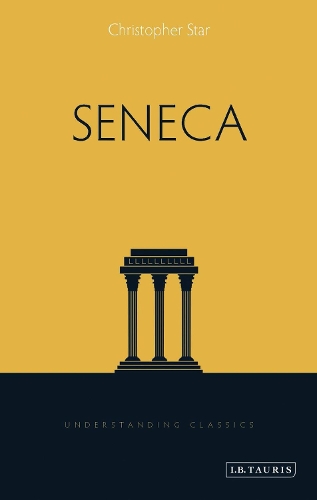
Seneca
(Paperback)
Publishing Details
Seneca
By (Author) Christopher Star
Bloomsbury Publishing PLC
I.B. Tauris
1st November 2016
United Kingdom
Classifications
Tertiary Education
Non Fiction
Literary studies: ancient, classical and medieval
Ancient Greek and Roman philosophy
872.01
Physical Properties
Paperback
208
Width 138mm, Height 214mm, Spine 16mm
275g
Description
After centuries of neglect there is renewed interest in the life and works of Lucius Annaeus Seneca (or Seneca the Younger, c 4 BCE-65 CE). At one time an advisor at court to Nero, Seneca and his political career came to ruin when he was implicated in a later plot to kill the capricious and matricidal emperor, and compelled to commit suicide. Discredited through collusion, or at least association, with a notorious and tyrannical regime, Seneca's ideas were for a time also considered derivative of Greek stoicism and thus inferior to the real thing. In this first in-depth introduction to be published for many years, Christopher Star shows what a remarkable statesman, dramatist and philosopher his subject actually was. Seneca's original contributions to political philosophy and the philosophy of the emotions were considerable. He was a favourite authority of Tertullian, who saw Seneca as proto-believer and early humanist. And he is a key figure in the history of ideas and the Renaissance, as well as in literature and drama. This new survey does full justice to his significance.
Reviews
"The obvious comparisons for this volume are C. Mendell, Our Seneca (1941) and M. Griffin, Seneca: a Philosopher in Politics (1976). Both books were great successes and remain highly respected; S.'s admiration is nuanced and laudable"
--The Classical ReviewAuthor Bio
Christopher Star is Associate Professor of Classics at Middlebury College, Vermont. He is the author of The Empire of the Self: Self-Command and Political Speech in Seneca and Petronius (2012).
